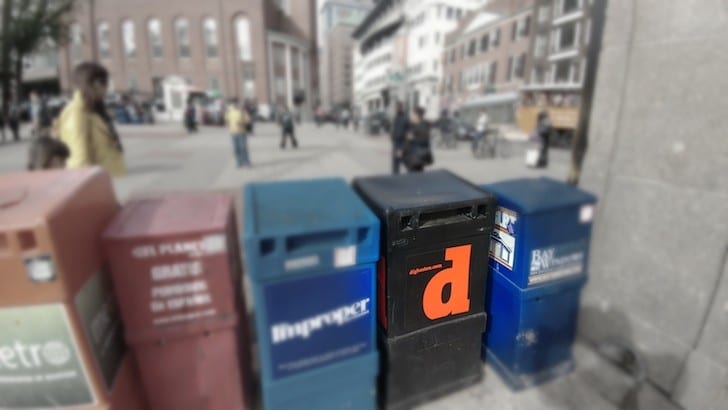
DigBoston asks readers to chime in about our coverage, digital presence, and events
February 28, 2018
BY JASON PRAMAS @JASONPRAMAS
Frequent readers know that my colleagues and I on the new DigBoston staff like to hear from people from all the varied communities that make up our audience, talk with them, and hang out with them. So, it should come as no surprise that we’re very open to suggestions about what we do as a news organization and how we do it.
Nevertheless, we believe it’s important that we periodically extend a formal invitation to our audience—our extended community—to give us such feedback. To demonstrate that we’re not only amenable to two-way communication as journalists, but that we actively encourage it. And that, as we’ve said in the past, we think it’s impossible to be good journalists without it.
After running this paper for eight months, we can use specific input in three areas: our coverage, our digital presence, and our public events. We’d really appreciate it if respondents put some serious thought into their suggestions, and fill out the fast response form at the bottom of this page.
Coverage
The heart of any news publication is obviously its content. DigBoston has a number of regular sections, including News, Music, Theater, Film, Visual Arts, Comedy, and Comics. In addition, we run Chris Faraone’s “Dear Reader” editorial weekly, a number of columns, opinion pieces when we have them, and my occasional editorials (like this one). Increasingly we also have big special features that dive deep into important issues of the day. And nice photos and artwork scattered throughout our publication and featured on the front page of our print edition.
In terms of feedback on our coverage, we’d like to hear: a) what people like and want to see more of, b) what people don’t like and want to see less of, and c) what areas readers think we don’t cover but should.
General responses are appreciated, but specific responses are always more useful to us.
Digital
In this era, it’s expected that a print newspaper like DigBoston will have a robust online presence. We do our best with limited resources, but we know that we still have a ways to go before we’re up to speed on this front.
The core of a good digital news operation remains a website. But now that more and more people are getting their news from phones, tablets, and traditional computers alike, websites have to be upgraded to display properly on a variety of screen sizes.
At least once a week these days, one or more readers will hit us up to complain about our digboston.com website not being mobile-friendly. And we definitely hear them loud and clear. So this spring we’re building a new website that will look good on any device.
Still, since we’re just about to start work on that site, it’s a great time for folks to let us know what kind of other features they’d find useful on it.
We’d also like advice on a couple of innovations we’re planning to introduce on digboston.com. Namely, we’re thinking about eliminating ads from the site entirely, and about doing a pop-up on every web article that will take up the bottom third of the reader’s screen (like theguardian.com) and invite them to become sustainers (in exchange for invites to special events, etc.) to help make sure that we’re able to keep providing you all with the kind of hard-hitting news coverage and fun arts and entertainment articles that you can’t find anywhere else in our region. Any advice on those moves would be super helpful.
Also, you can find every Dig article on no less than six social media platforms. We post to them pretty much every day. Here they are:
You can also subscribe to DigBoston content for free on the following news aggregators: Apple News, Google Play Newsstand, and soon Flipboard.
We even make the pdf of our print edition available on issuu.com/digboston. And help manage the recently-reactivated /r/bostonjournalism subreddit at reddit.com/r/bostonjournalism/.
While that seems like a broad digital presence, there are new social media platforms and news aggregators starting up all the time. So we’d like to know if there are any we should be on, but aren’t. And are we using the platforms and aggregators in question in the best way? If digital mavens have any tips and tricks to share with us, please do.
Events
We organize public events all the time, and participate in the events of other organizations as well. We do talks, workshops, courses, concerts, conferences, fairs, and festivals. We now also do a discrete amount of direct political activism by working for the abolition of nuclear weapons.
Are you with an organization—particularly a group rooted in one of the many Boston-area communities we cover on a regular basis? Do you like what we do at DigBoston? Are you running an event you’d like us to participate in? Or would you like to propose organizing an event with us? Then drop us a line.
And readers in general, are there events we’ve done that you have some input on? Are there events you’d like to see us do? Let us know.
Anything else I didn’t mention about DigBoston that you’d like to comment on? Then, again, please fill out the fast response form at the bottom of this page.
Look forward to hearing from you all.
Jason Pramas is executive editor and associate publisher of DigBoston.
